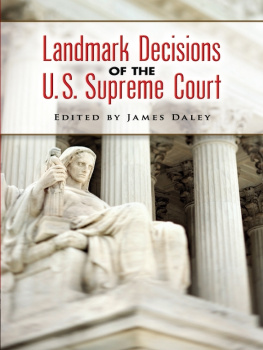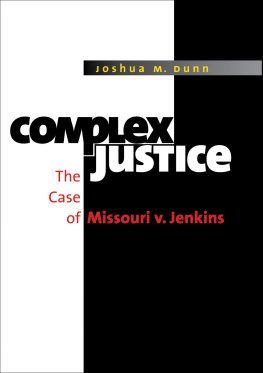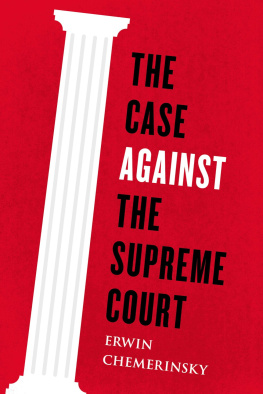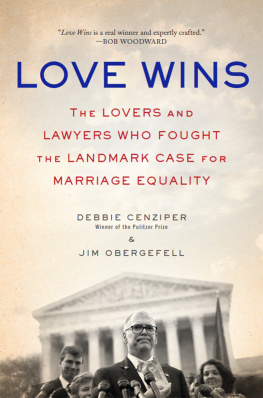Colored Men
AND
Hombres Aqu
Hernandez v. Texas and the Emergence
of Mexican-American Lawyering
Michael A. Olivas, Ed.
Foreword by Mark Tushnet

This volume is made possible through grants from the City of Houston through The Cultural Arts Council of Houston, Harris County and the Exemplar Program, a program of Americans for the Arts in collaboration with the LarsonAllen Public Services Group, funded by the Ford Foundation.
Recovering the past, creating the future
Arte Pblico Press
University of Houston
452 Cullen Performance Hall
Houston, Texas 77204-2004
Cotton Picker document, located in University of Texas-Permian Basin, Dungan Library, Archives / Special Collections, in personal library of John Bell Shepperd. Reprinted with permission.
Cover design by James Brisson
Colored Men and Hombres Aqu: Hernandez v. Texas and the Emergence of Mexican-American Lawyering / edited by Michael A. Olivas.
p. cm.
ISBN-10: 1-55885-476-2 (alk. paper)
ISBN-13: 978-1-55885-476-5
1. Hernandez, PeteTrials, litigation, etc. 2. Jackson County (Tex.) Trials, litigation, etc. 3. Trials (Murder)TexasJackson County. 4. Race discriminationTexasJackson County. 5. Jury selection United States. I. Olivas, Michael A.
KF224.H468C65 2006
2006040240
 The paper used in this publication meets the requirements of the American National Standard for Information SciencesPermanence of Paper for Printed Library Materials, ANSI Z39.48-1984.
The paper used in this publication meets the requirements of the American National Standard for Information SciencesPermanence of Paper for Printed Library Materials, ANSI Z39.48-1984.
2006 by Arte Pblico Press
Printed in the United States of America
6 7 8 9 0 1 2 3 4 5 10 9 8 7 6 5 4 3 2 1
The petitioner's initial burden in substantiating his charge of group discrimination was to prove that persons of Mexican descent constitute a separate class in Jackson County, distinct from whites. One method by which this may be demonstrated is by showing the attitude of the community. Here the testimony of responsible officials and citizens contained the admission that residents of the community distinguished between white and Mexican. The participation of persons of Mexican descent in business and community groups was shown to be slight. Until very recent times, children of Mexican descent were required to attend a segregated school for the first four grades. At least one restaurant in town prominently displayed a sign announcing No Mexicans Served. On the courthouse grounds at the time of the hearing, there were two men's toilets, one unmarked, and the other marked Colored Men and Hombres Aqui (Men Here). No substantial evidence was offered to rebut the logical inference to be drawn from these facts, and it must be concluded that petitioner succeeded in his proof.
Hernandez v. Texas, 347 U.S. 475, 479-80 (1954) (footnotes and references omitted)
Dedication
To the attorneys who brought this case and worked so hard on behalf of our community: Gus Garcia, Carlos Cadena, Johh J. Herrera, and James de Anda. They leaned against power when it was dangerous to do so, and left the trail clearer for those who followed so long after. All Latino and Latina lawyers and advocates stand on these shoulders, even if they do not realize it.
Table of Contents
MARK TUSHNET
MICHAEL A. OLIVAS
LAURA E. GMEZ
IAN HANEY LPEZ
KEVIN R. JOHNSON
JUAN FRANCISCO PEREA
NEIL FOLEY
STEVEN HARMON WILSON
CLARE SHERIDAN
SANDRA GUERRA THOMPSON
JAMES DE ANDA
MICHAEL A. OLIVAS
Foreword
The so-called New Western Historians have shown us how to write cultural and social history from West and Southwest to East, in contrast to the traditional narrative written from Eastthe Pilgrims and all thatto West and Southwest. Writing political history from West and Southwest to East is more difficult, though perhaps possible. Writing constitutional history in that direction seems impossible, because of the central role African slavery played in the creation and early development of the Constitution. As this collection of articles on Hernandez v. Texas shows, the situation is different for contemporary constitutional law. The West and Southwest can become central to our understanding of the constitutional law of the twentieth and twenty-first century.
Constitutional law in the nineteenth century did confront the West and Southwest, but the issues implicated in those confrontations reflected the centrality of slavery in the constitutional law of the era. This is true of both the adjudicated Constitution and the non-adjudicated one. The Cherokee Removal cases presented a conflict among three national institutionsthe national government, state governments, and the Supreme Courtin the course of implementing a national policy aimed at separating indigenous Americans from an area white Americans hoped to control. The Supreme Courts constitutional cases, though, were about the role of states and the Supreme Court in implementing that policy. That is, they were federalism cases in the ordinary mold. (Johnson v. MacIntosh, a non-constitutional case, did deal with fundamental questions about how the encounter between indigenous Americans and newcomers would develop.)
The Louisiana Purchase opened the way for migration from the East to what was then described as the West, and later to what we now call the West and Southwest. And there were constitutional issues connected to the Louisiana Purchase, though none reached the courts. The basic issue was whether the national government had the power to acquire territory by purchase. None of the powers enumerated in Article Iand nothing obviously inherent in the executive power of Article IIseemed to authorize permanent expansion by purchase. Note, though, that the question of whether an action fell within the enumerated powers was understood at the time to be fundamentally a question of states rights. That is, the national governments power was limited so as to ensure that states would continue to control matters of particularly local concern, the most important of which was slavery in the South.
It would be relatively easy to write the constitutional history of the nineteenth century with slavery and its post-1865 legacy at its heart. And, I think, scholars of constitutional law continue to see slaverys legacy as central to the development of constitutional law in the twentieth century. In the standard story, for example, Brown v. Board of Education lies at the core of twentieth century constitutional history. Harry Kalven wrote The Negro and the First Amendment, showing how cases arising out of the civil rights movement of the 1960s transformed free speech law. The Warren Courts revolution in constitutional criminal procedure is often described as an effort by the Supreme Court to regularize the law arising out of routine interactions between African Americans and the police in the nations cities.
Yet, this collection shows how the standard narrative can be displaced. Accidental facts indicate the opening: that Hernandez was decided just a week before Brown; that two central cases in the criminal procedure revolutionEscobedo v. Illinois and Miranda v. Arizonainvolved not African American but Latino defendants and one arose in the Southwest. In some ways, the question is, How wide an opening does the perspective from the West and Southwest provide?
Without intending to disparage the insights on constitutional criminal procedure we can get by looking from the West and Southwest, I will focus here on equal protection law, moving from some relatively narrow doctrinal points to a broader vision of the nations self-understanding. We can begin by noting the transformation of the subject matter of the equal protection clause from African Americans to race. The Supreme Court suggested in the







 The paper used in this publication meets the requirements of the American National Standard for Information SciencesPermanence of Paper for Printed Library Materials, ANSI Z39.48-1984.
The paper used in this publication meets the requirements of the American National Standard for Information SciencesPermanence of Paper for Printed Library Materials, ANSI Z39.48-1984.